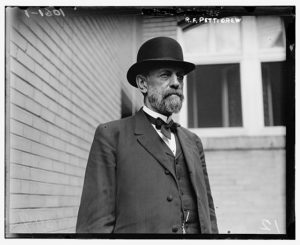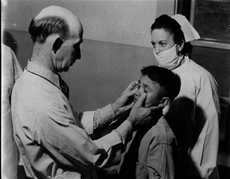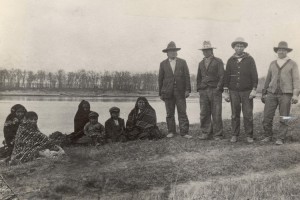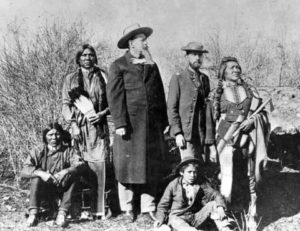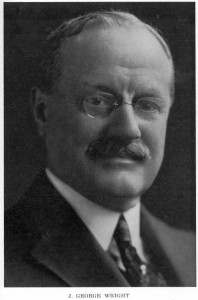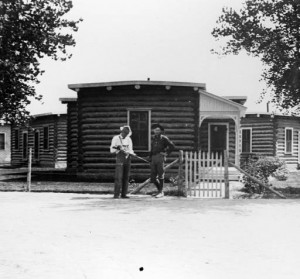Senator Richard Pettigrew wanted a federal insane asylum for Indians placed in South Dakota, the state he represented. Via the Committee on Indian Affairs, he pushed for information that would justify his project. The committee sent a query to Indian agents on reservations, asking among other things, how many insane Indians were in their jurisdiction, and what facilities or programs they had for dealing with insanity if it occurred. The forty agents who responded were somewhat disheartening (see last post), since most had only one or two insane Indians–if any–on the reservations they supervised, and most did not seem to require any special care. However, Pettigrew could make his point with the next part of the questionnaire, concerning facilities for helping or caring for insane Indians on reservations. Most replies were similar:
“We have no special course of treatment for mentally diseased Indians. When they become violent we place them in charge of the Indian police until such time as they can be transferred to an asylum for treatment.” Chas. E.McChesny
“We have no special course of treatment for mentally diseased Indians.” John W. Cramer
“As we have no hospital to keep insane in, we are unable to give any special treatment to this class of cases.” J. R. Finney, agency physician on behalf of agent Thomas Richards
“They are cared for by their relatives.” Robert M. Allen
One agent’s reply is representative of several others: “Have never known of an insane Indian. There is no necessity for such (special course of treatment for insane Indians) on this reservation.” H. B. Freeman
Senator Pettigrew at least had the satisfaction of proving that reservations had no facilities or programs to care for Indians who became insane. His real challenge was to convince Congress to build an asylum for the exclusive use of the fifty to sixty Indians who might need its services.
______________________________________________________________________________________
